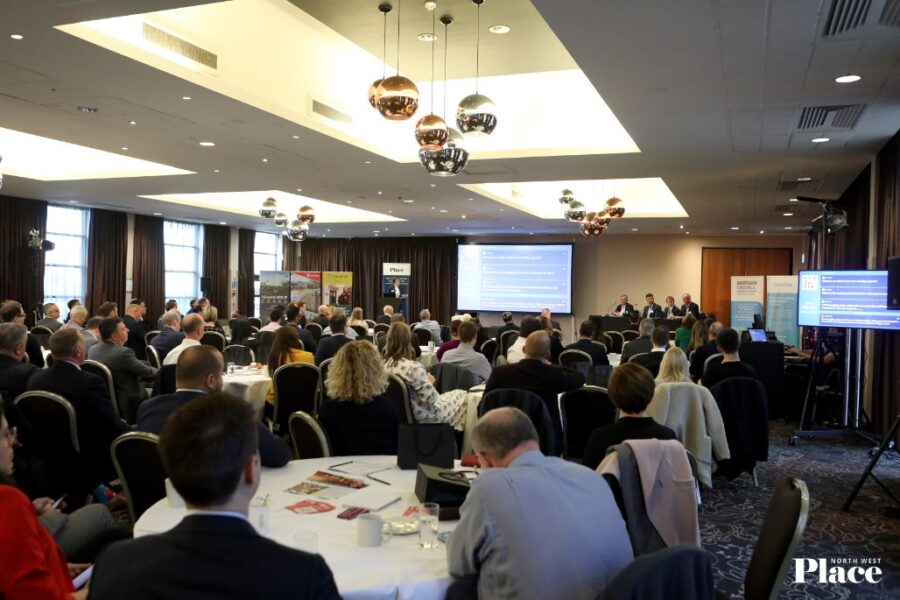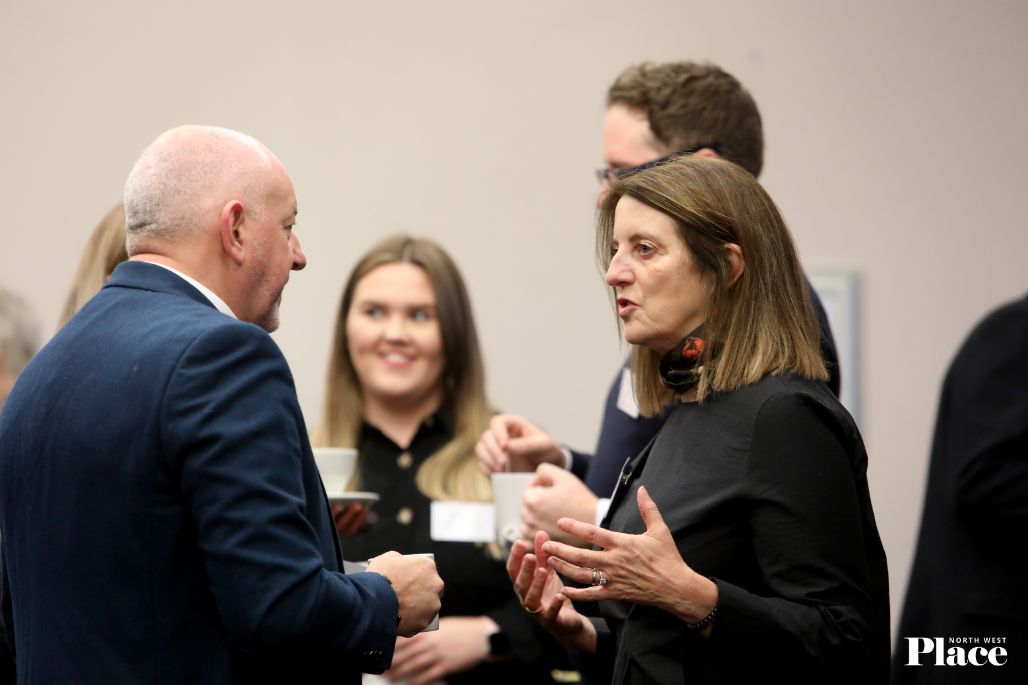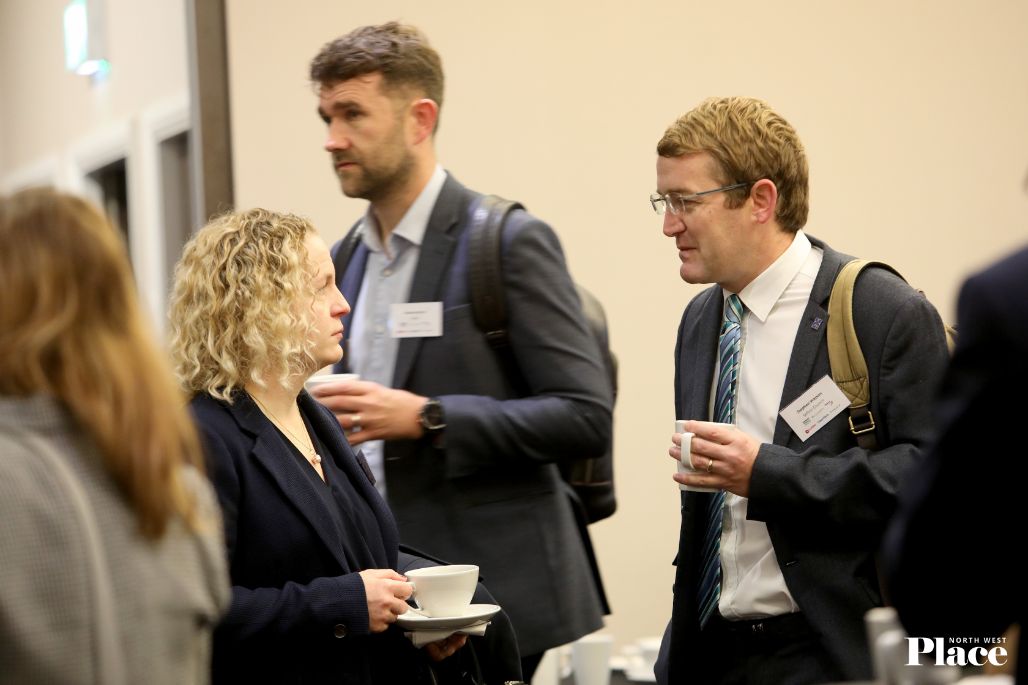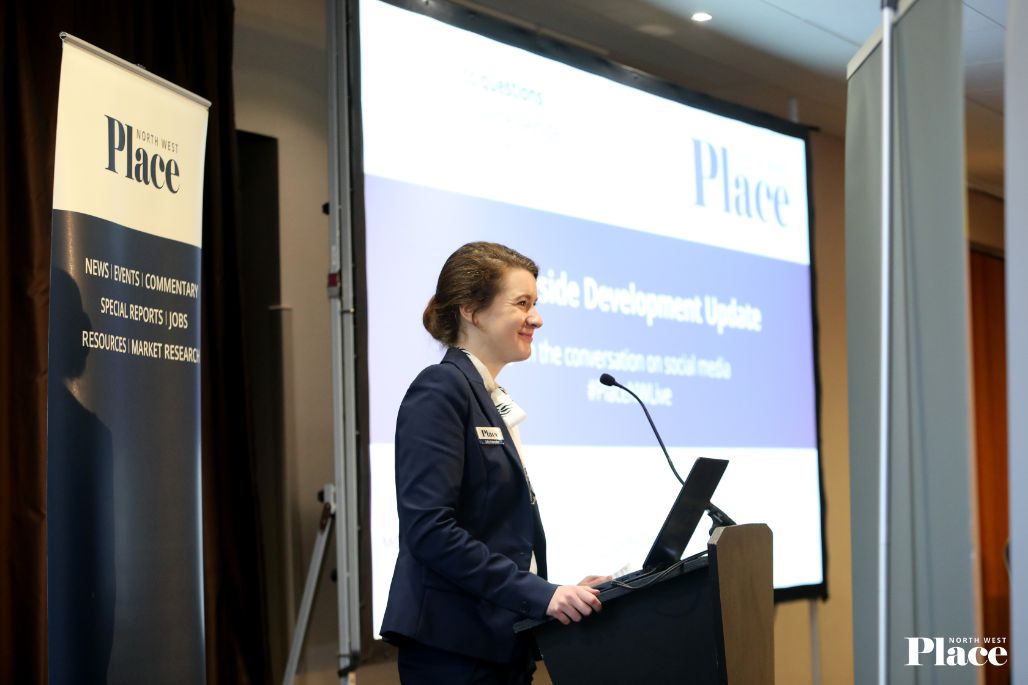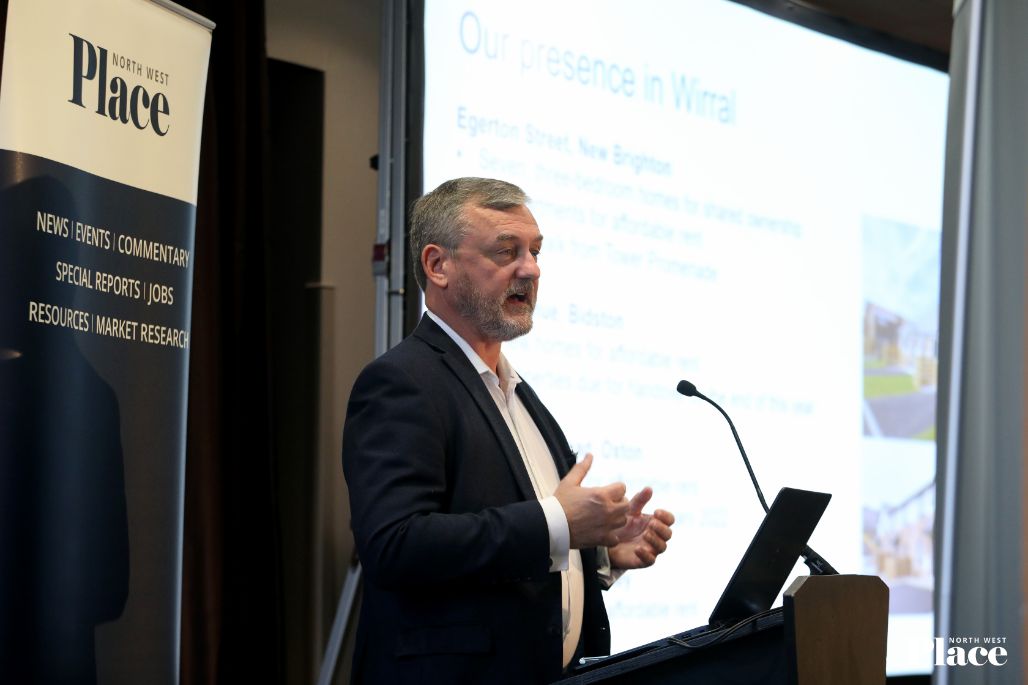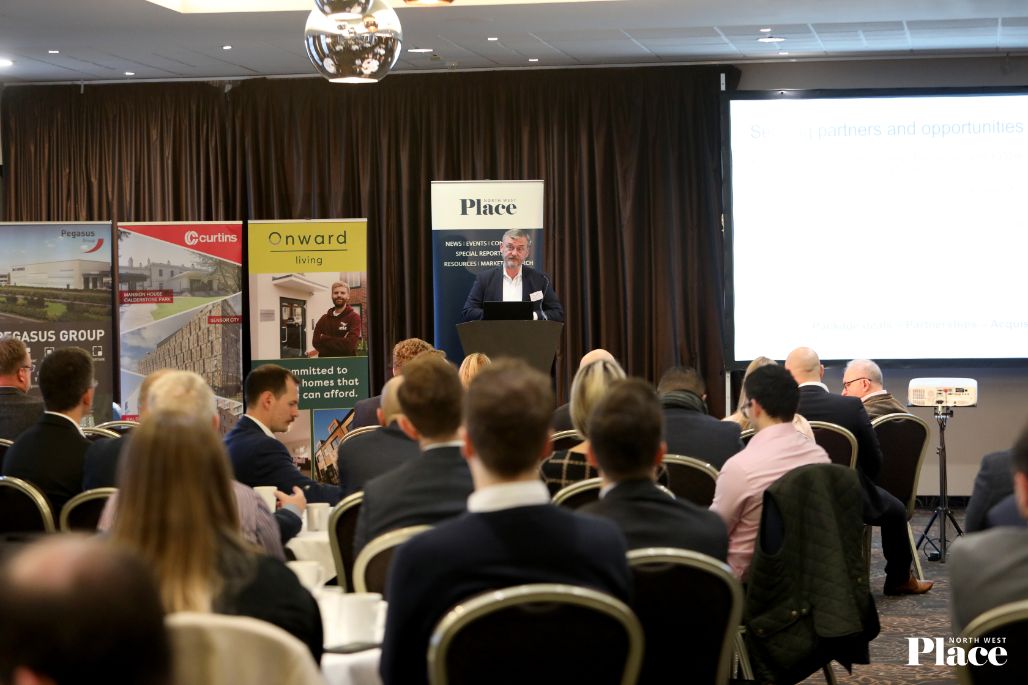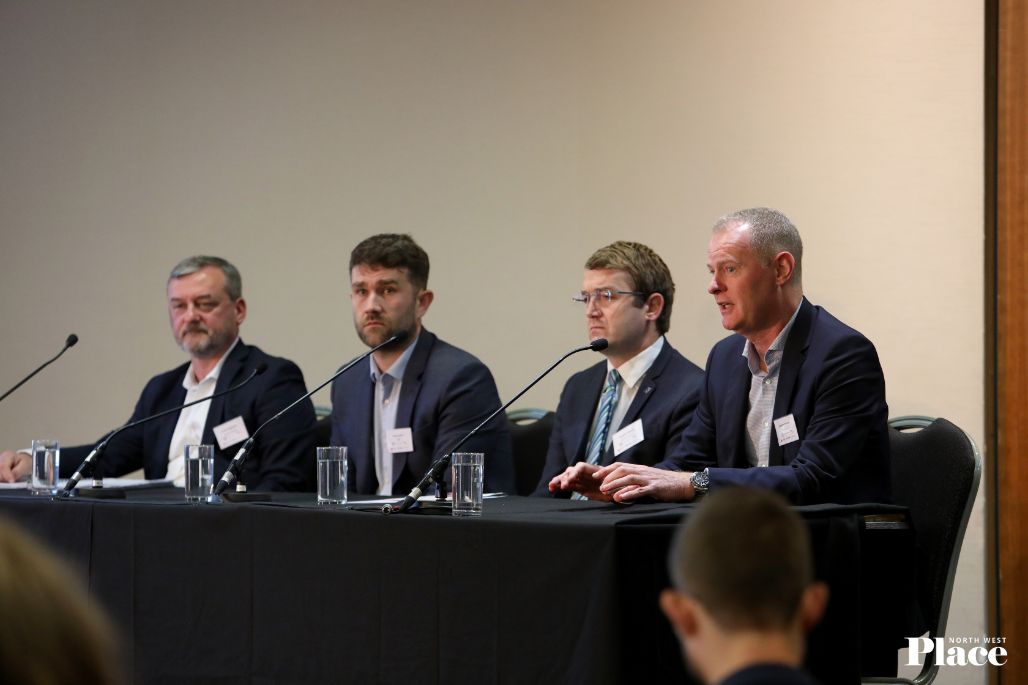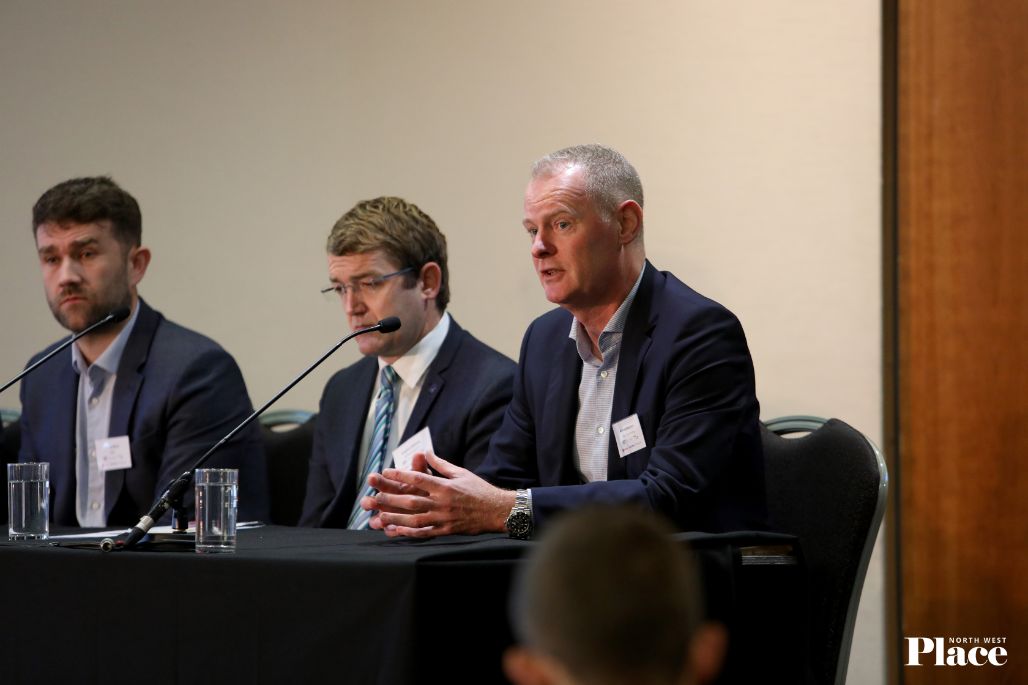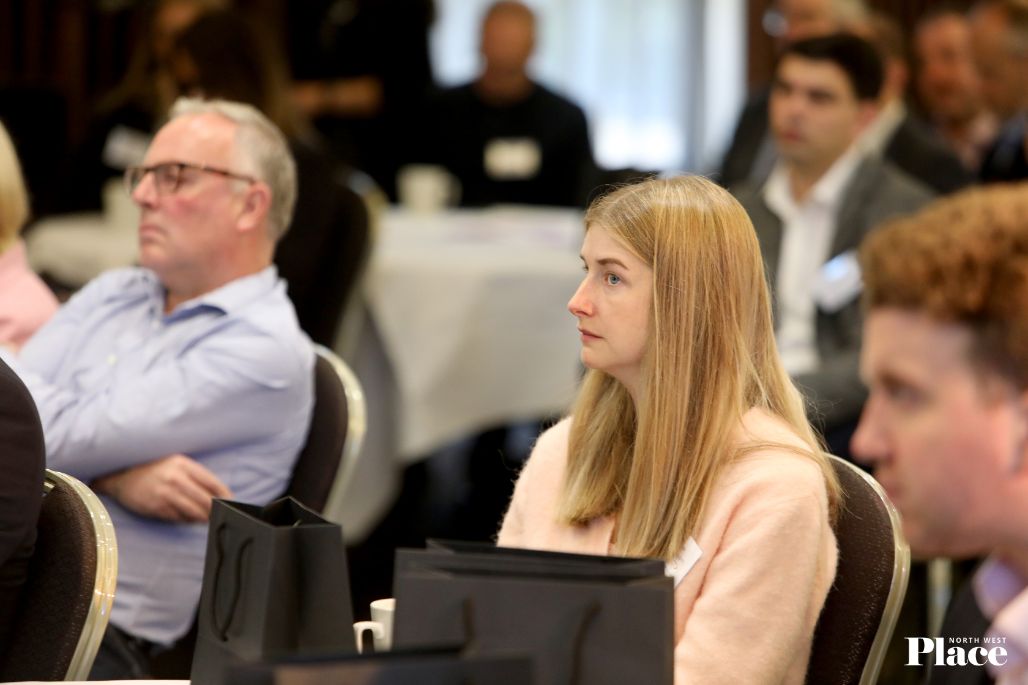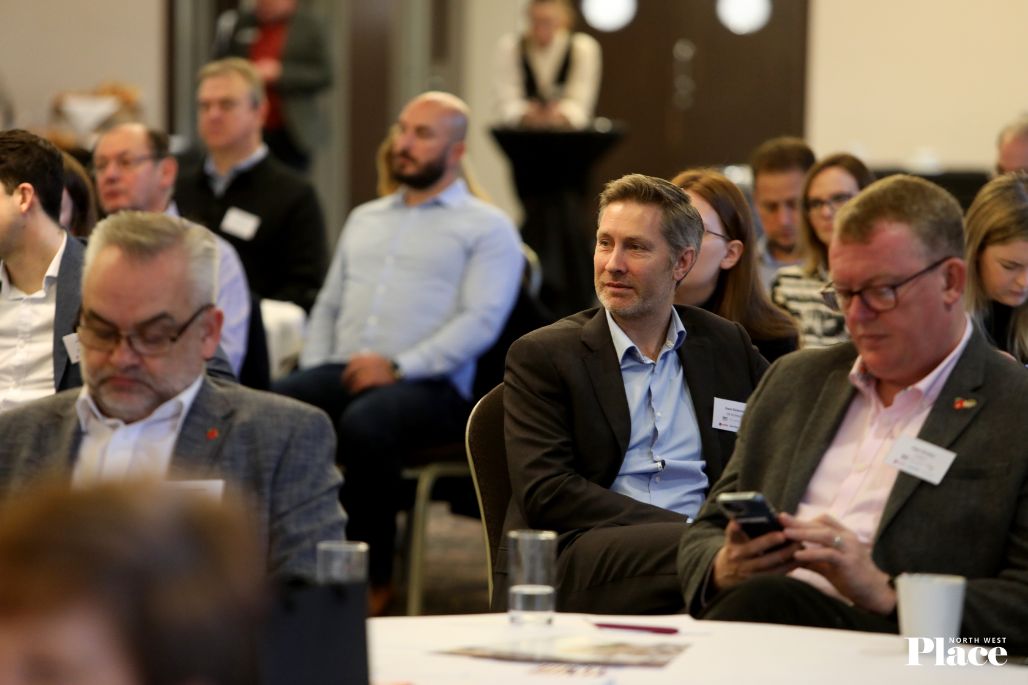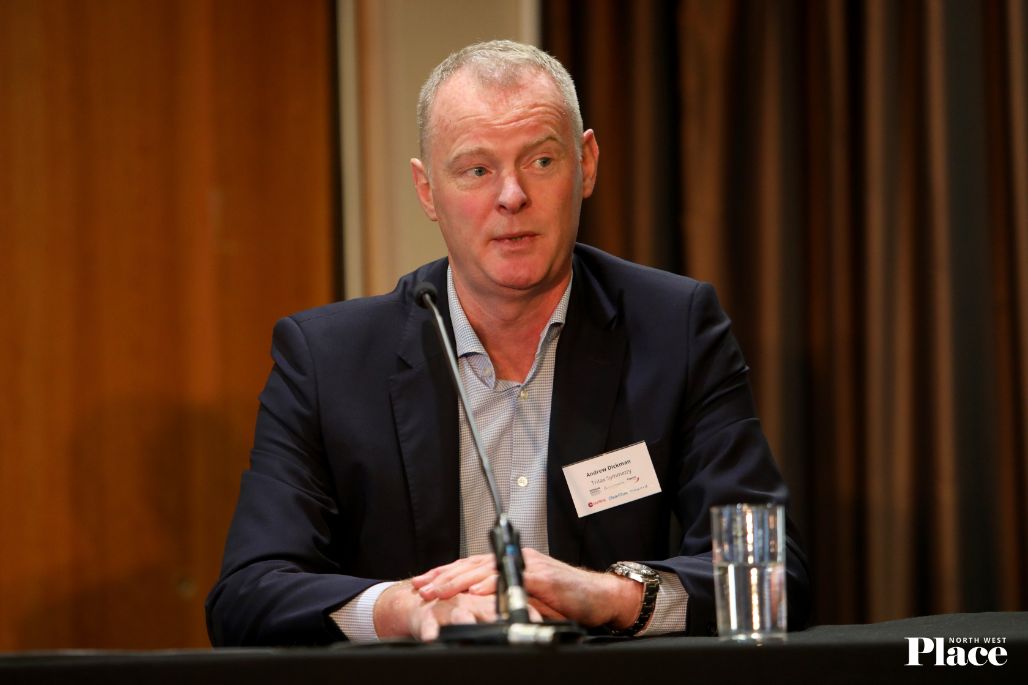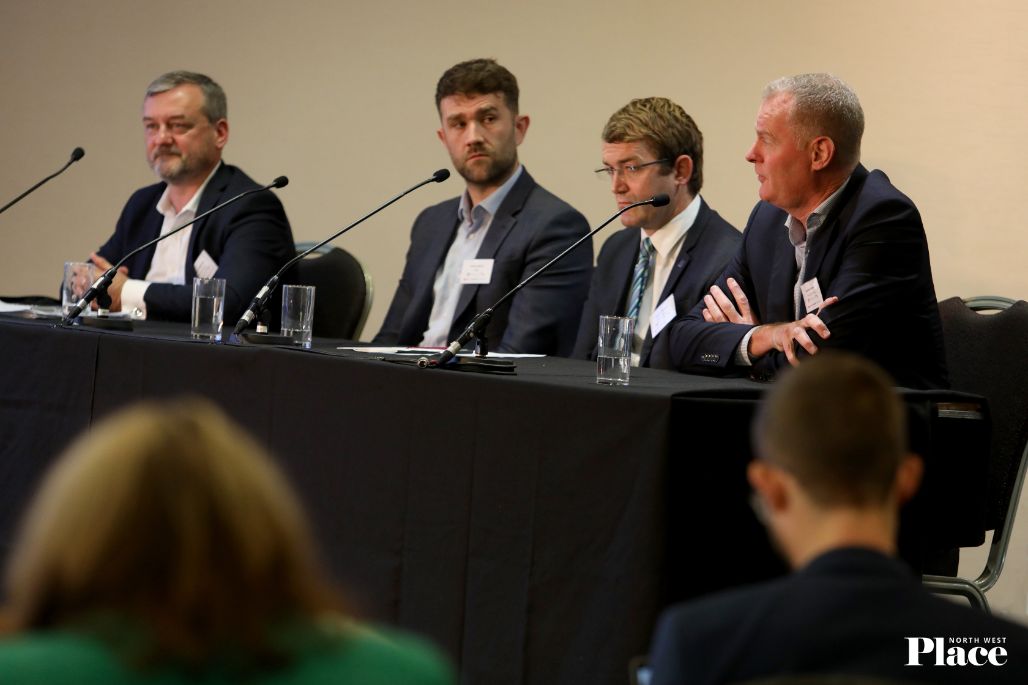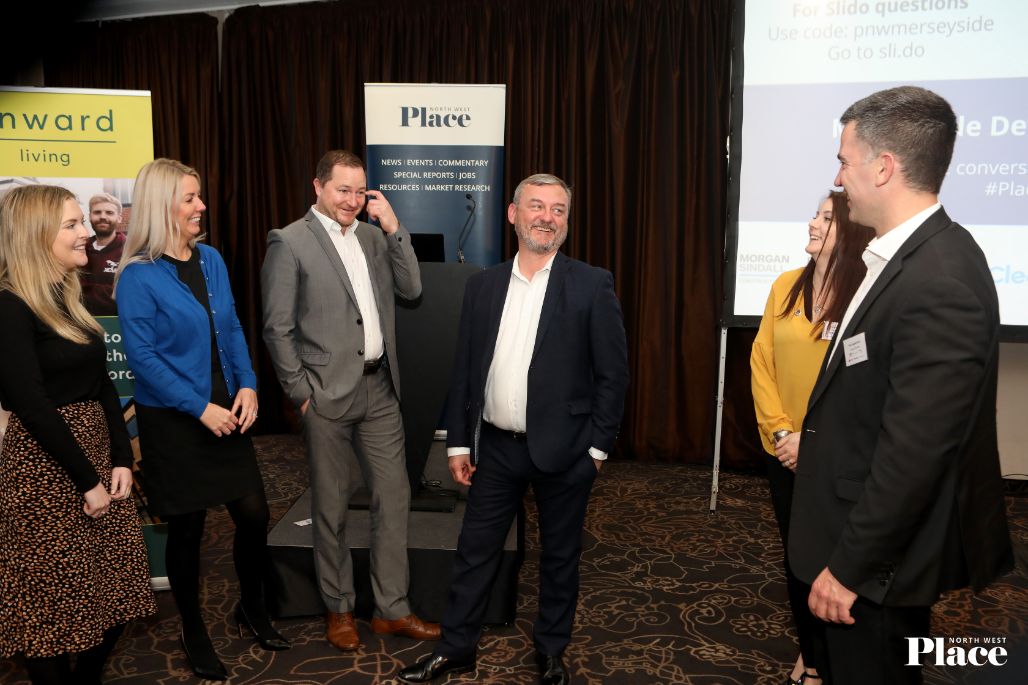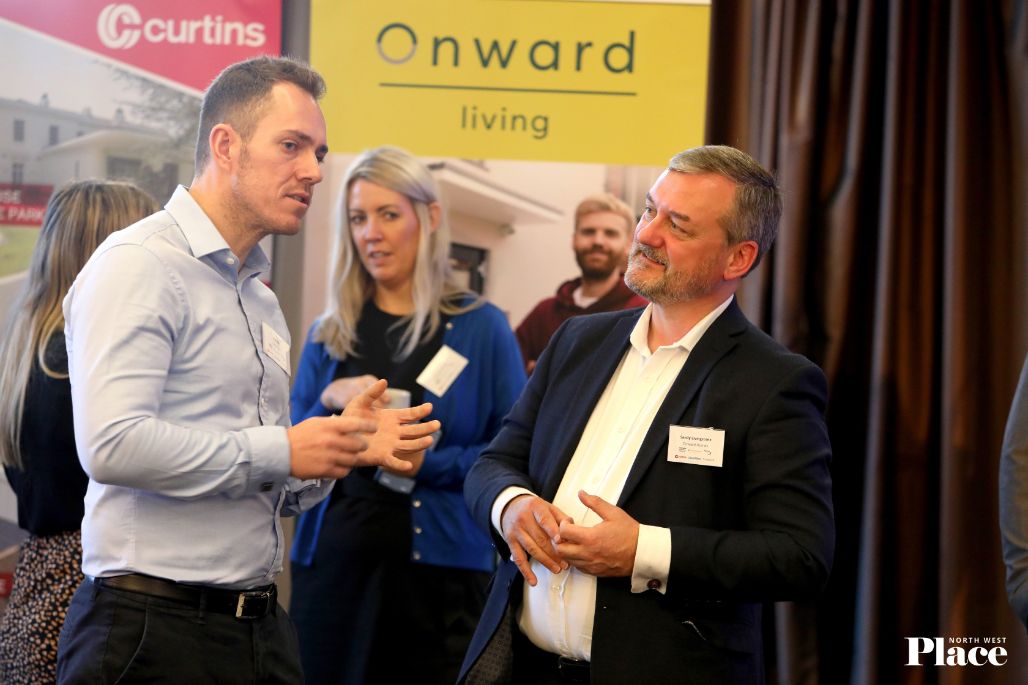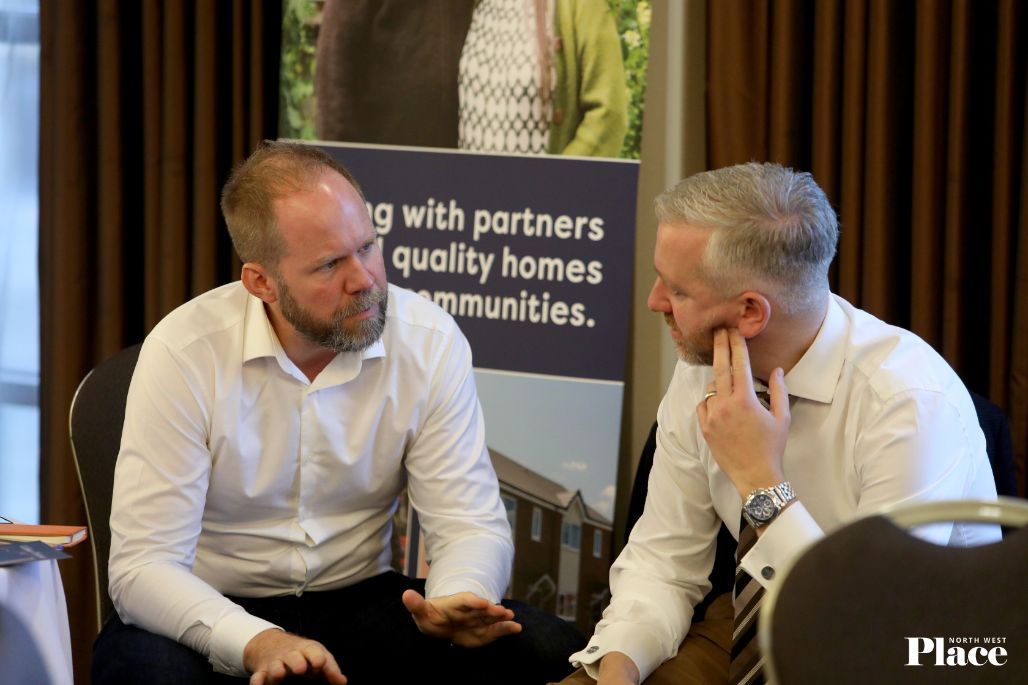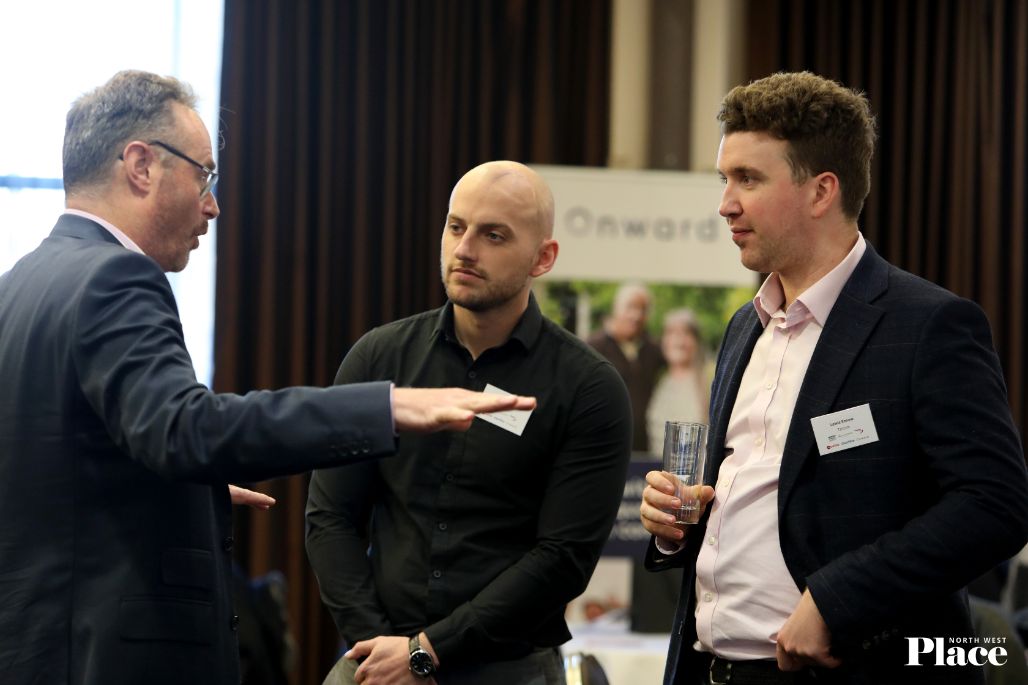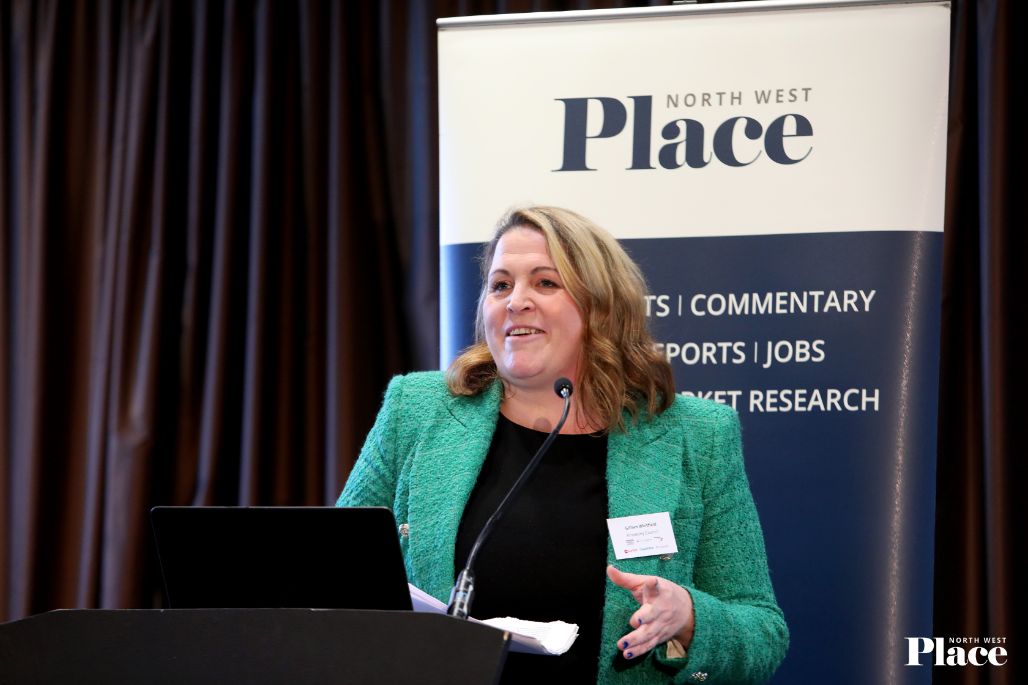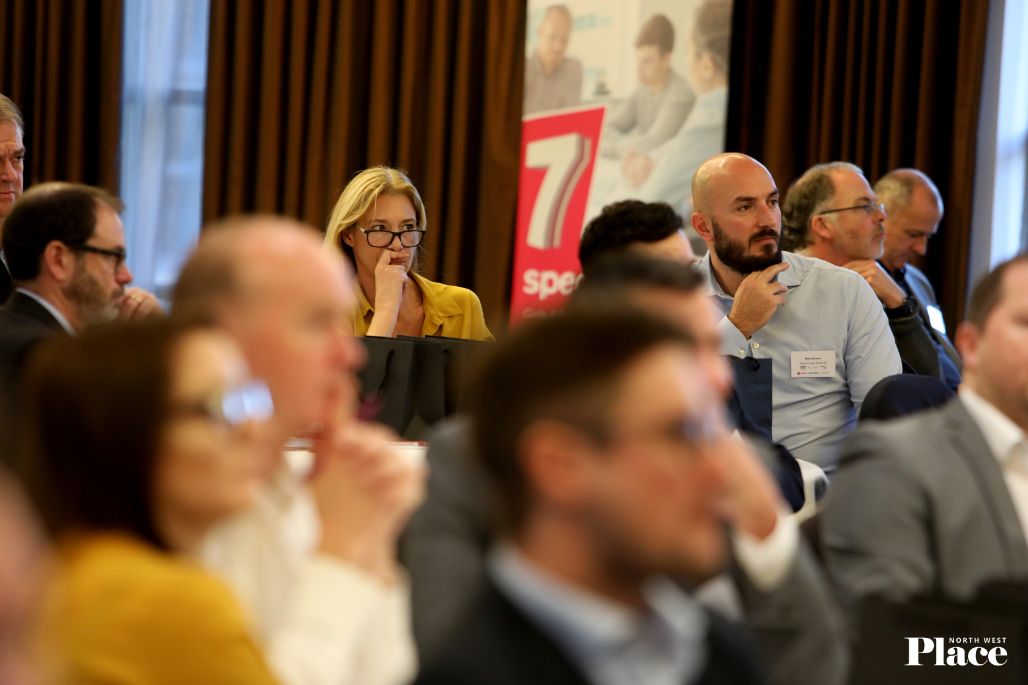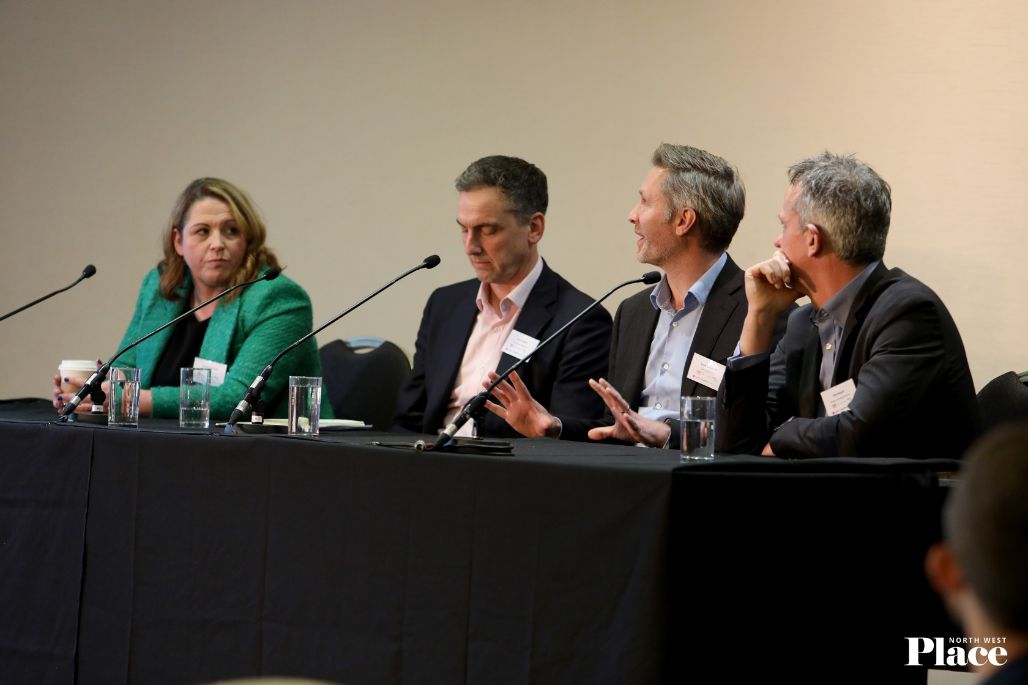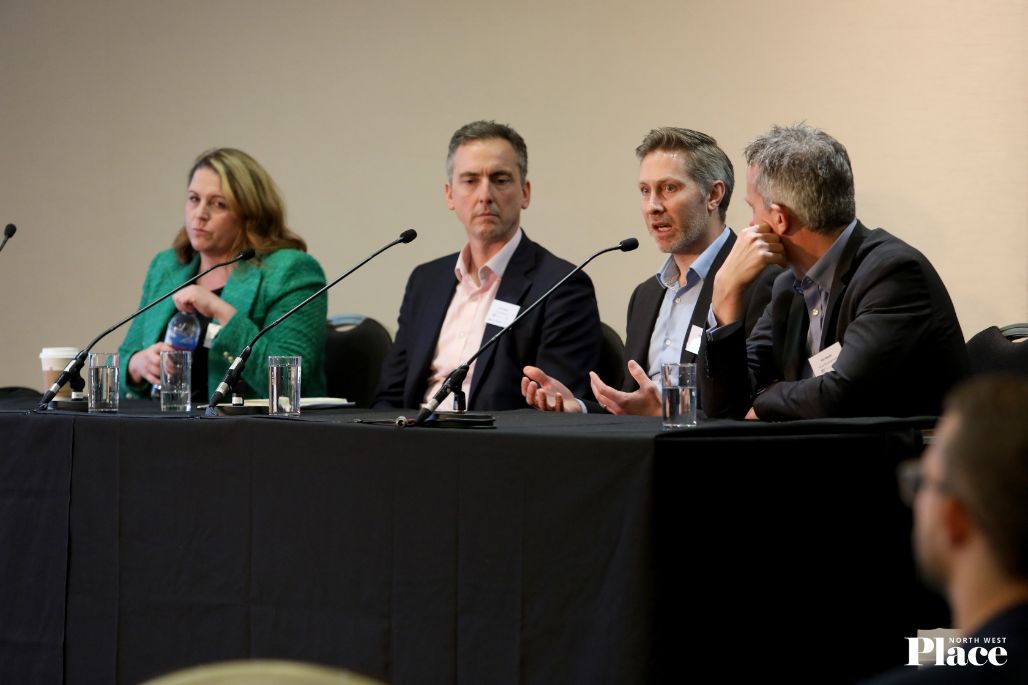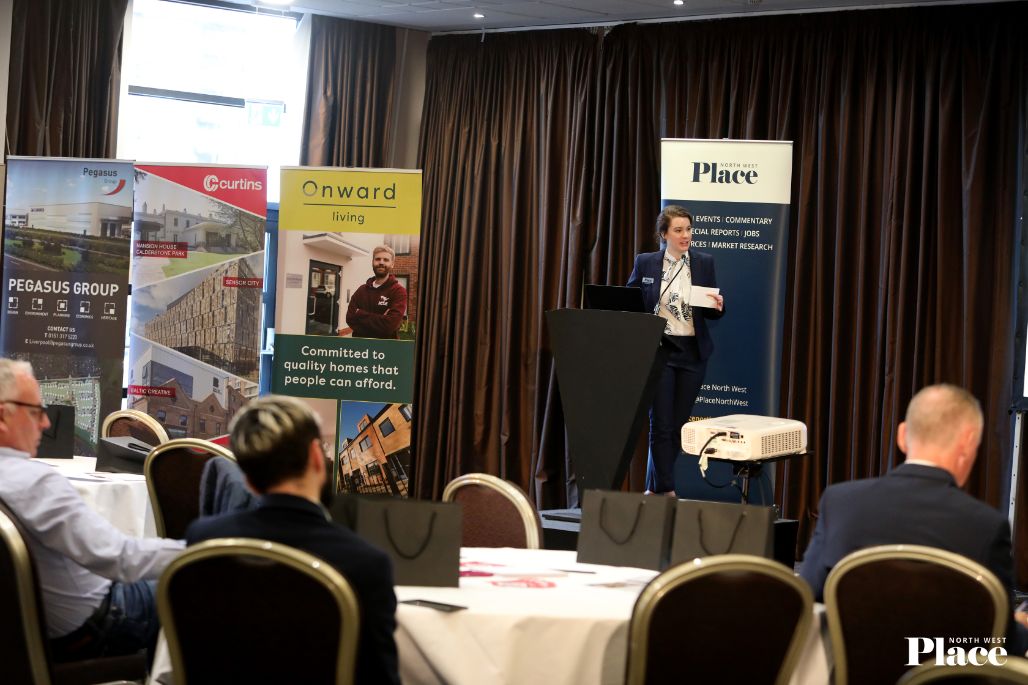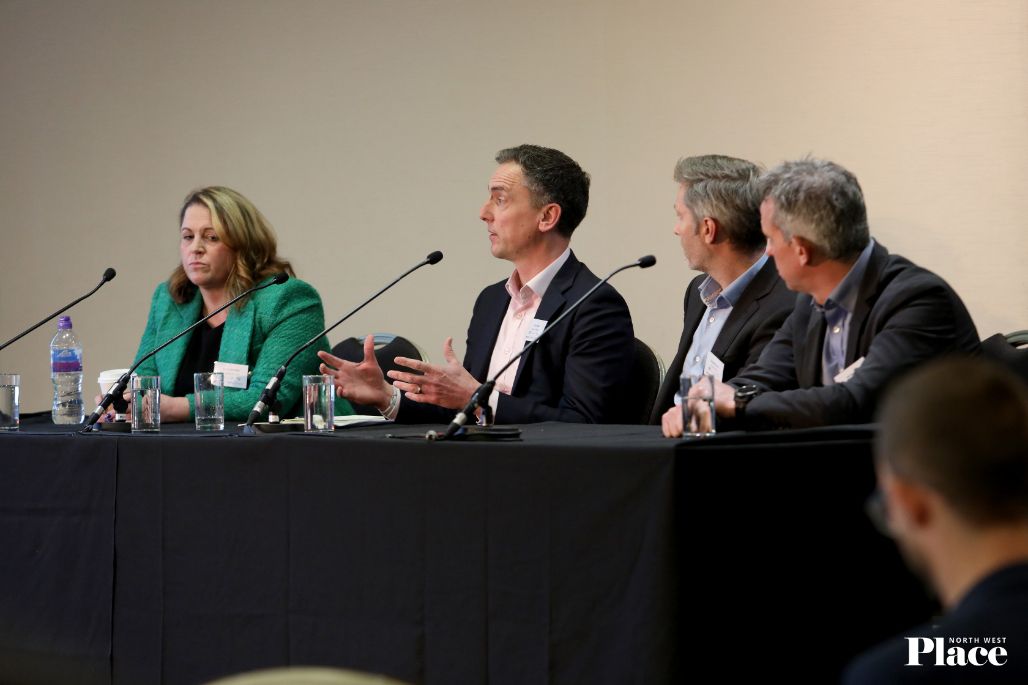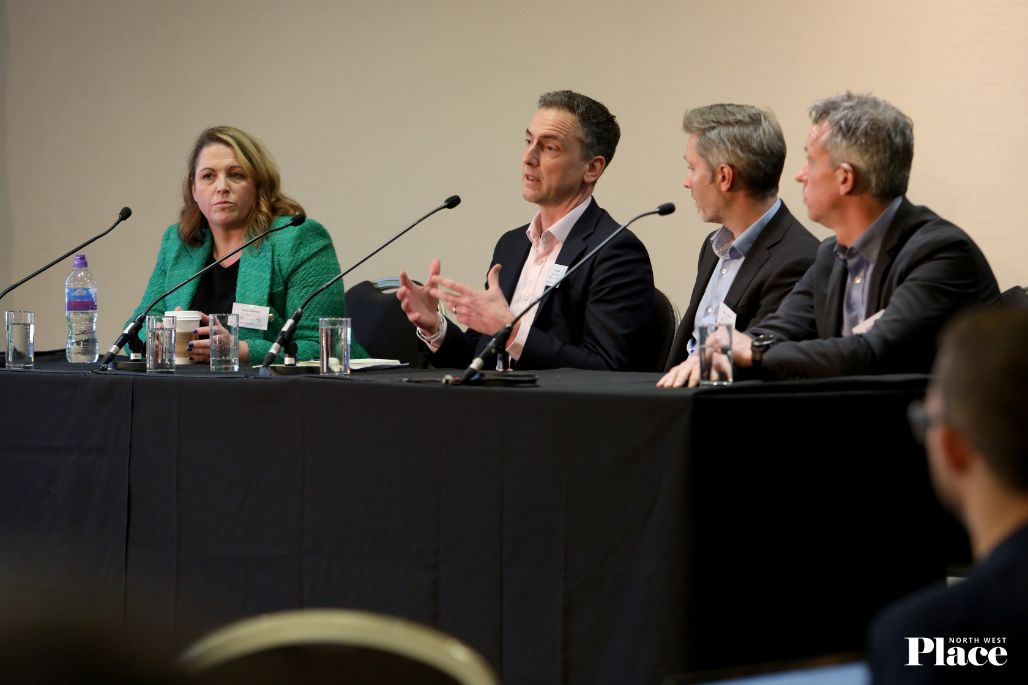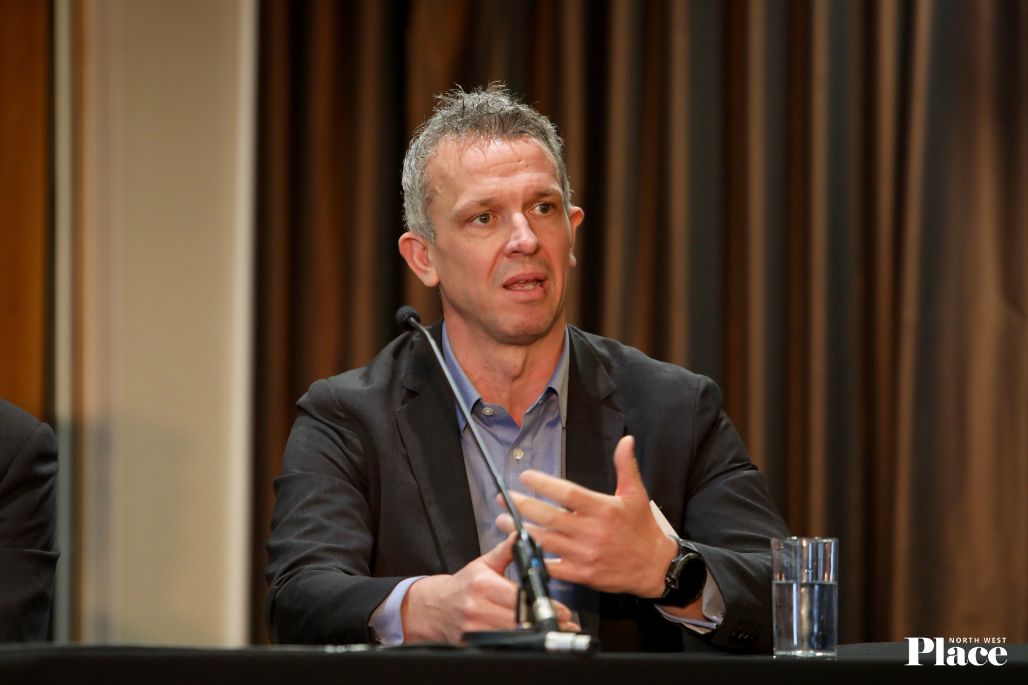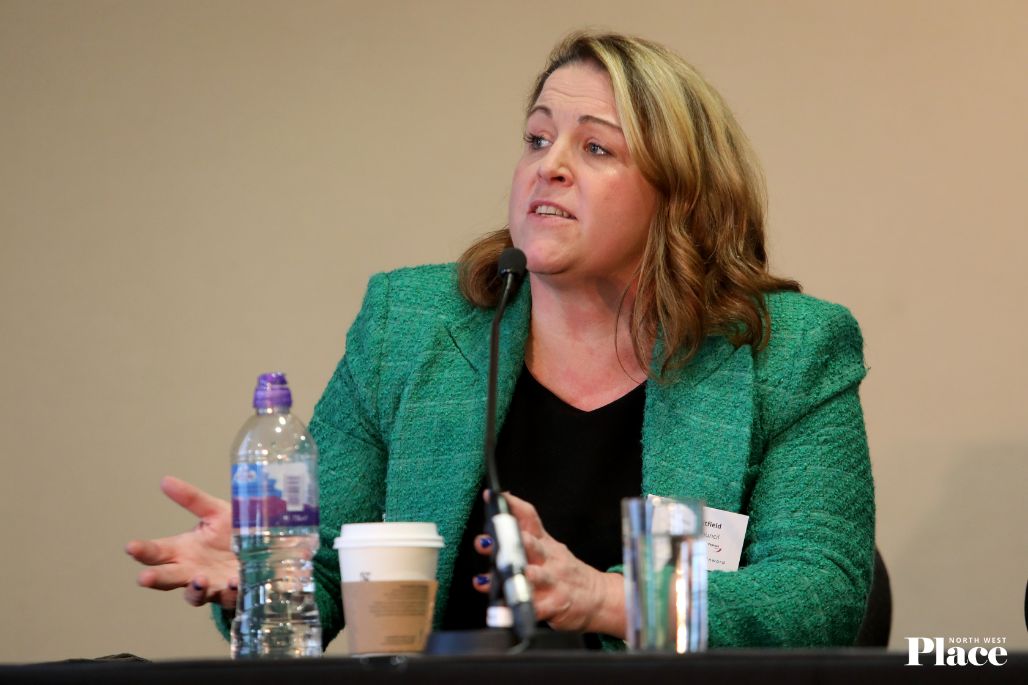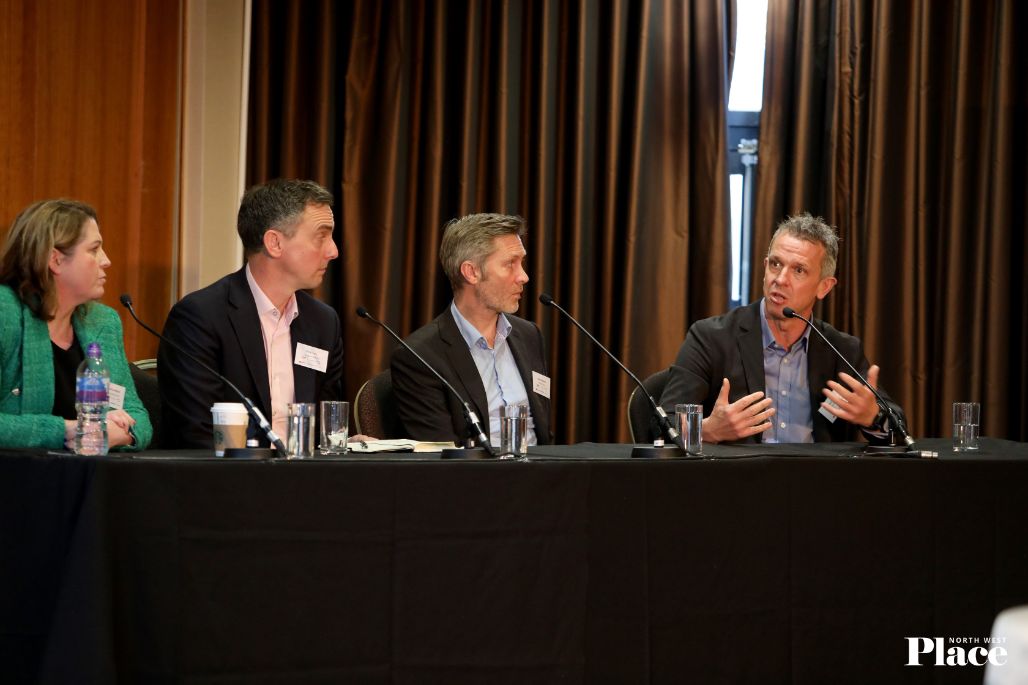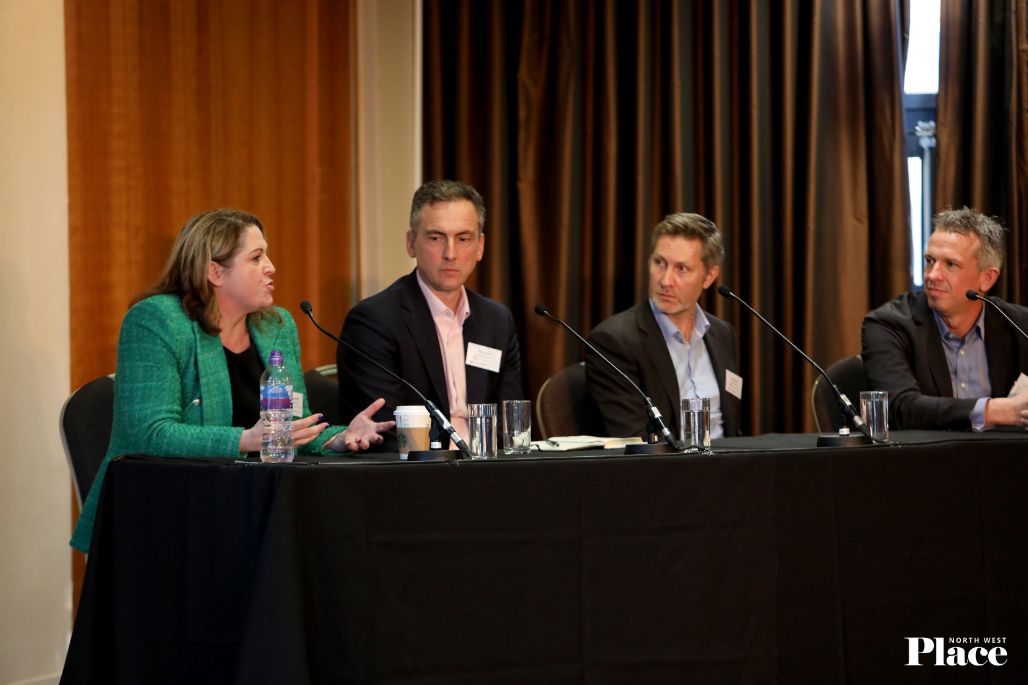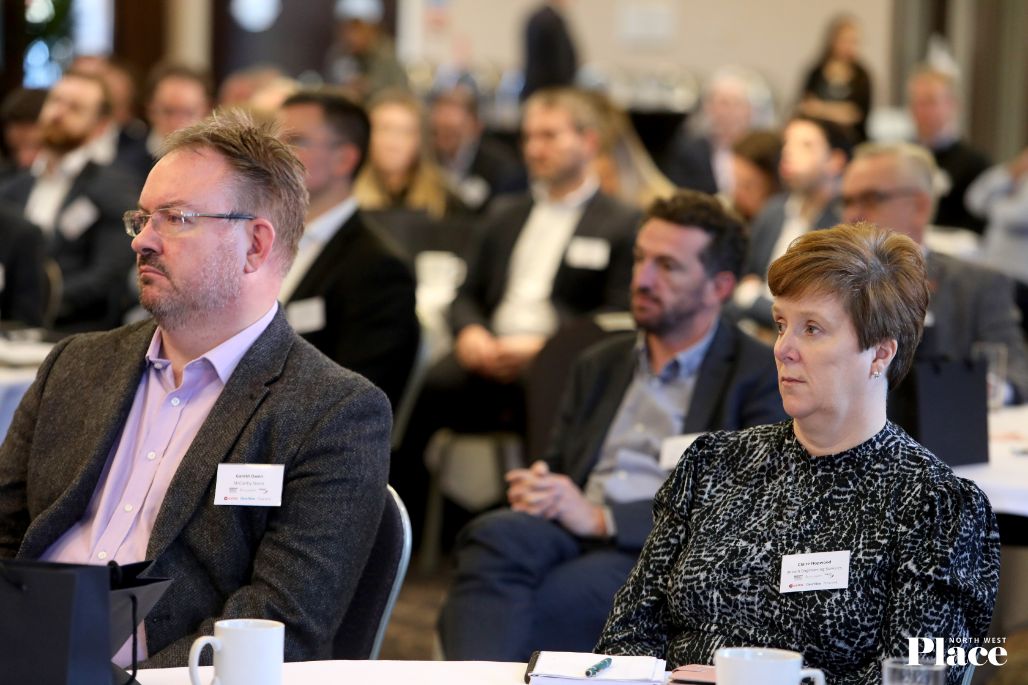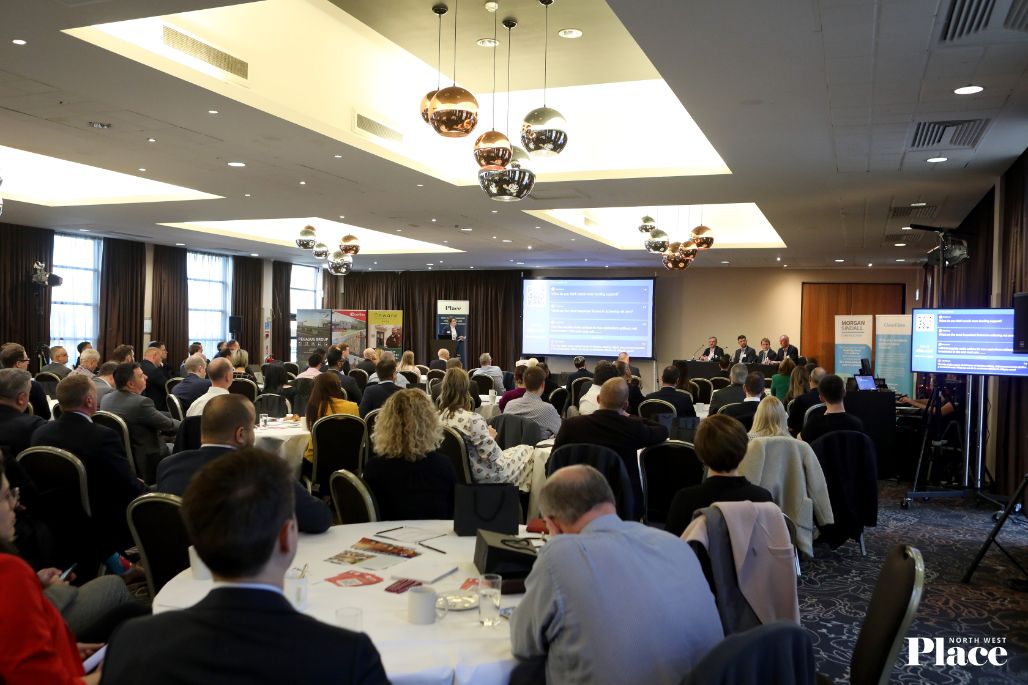Event Summary
Merseyside Development Update | Photos and summary
Merseyside’s commercial and residential development was under the spotlight as industry and public sector experts came together to discuss the future of the region.
The success of levelling up funding, local authority co-operation and the delivery of net-zero buildings were all discussed over two panels at Place North West’s Merseyside Development Update, sponsored by Morgan Sindall, Tritax Symmetry, Pegasus Group, Curtins, Clear Fibre and Onward Homes and hosted by Julia Hatmaker, deputy editor at Place North West.
Scroll down to see photos from the event.
Presentation – Onward Homes
Sandy Livingstone, executive director of property at Onward Homes, introduced the company. Recently appointed as a strategic partner for Homes England, Onward Homes received £150m of government funding as part of a plan to deliver 5,000 homes in the next 10 years.
“As far we’re concerned, we’ve secured the funding we need for us to deliver our ambitions as an organisation,” Livingstone said.
On top of its government funding, Onward Homes recently did a “very successful” bond issue and teamed up with housing association Progress Housing to build 600 homes across the region. Livingstone added that the company is always on the lookout for more partnerships and joint ventures.
Onward Homes’ ambition, Livingstone said, is to create long-term, sustainable communities. “Our view is that we will be with our communities 60 to 100 years from now, so what we build has to sustain and has to sustain the community through that period of time,” he said.
As a result, Onward Homes has developed a mix of tenures: from starter homes to shared ownership to extra care “and everything in between”.
The developer has three sets of objectives: economic growth and regeneration, providing choice to communities and addressing areas where housing is unaffordable in the region.
Livingstone gave a number of examples, including several small sites of 14 and 20 homes in Aigburth. “We’re the first housing association in a long time to develop houses in Aigburth,” he said. The area is attractive, but it’s difficult to access housing as a local person – a perfect fit for Onward Homes’ ambitions.
Besides building communities, the company’s aim is to “spend the Northern pound well”, investing in the local community by working solely with North West-based contractors and developers.
“We spend £150m a year in the North West, so we have a considerable opportunity to influence how that money is spent,” Livingstone said.
This not only helps the local economy but also creates opportunities to invest in skills, training and apprenticeship.
Young people aren’t as interested in joining the industry anymore, which means housebuilders are grappling with an ageing workforce: “One of the jobs that we do – that we see us doing – as a major North West based housing association is encouraging and changing that trend.”
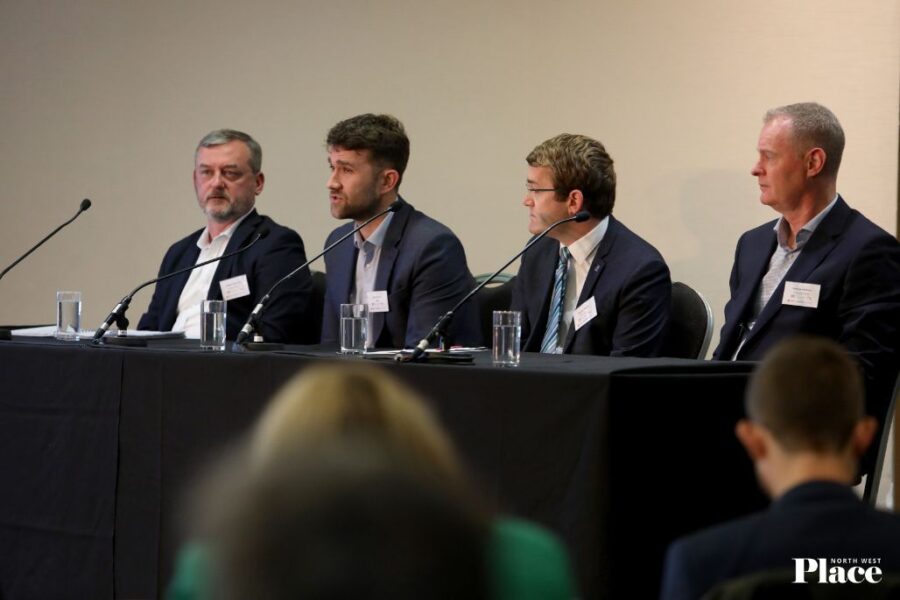
From left: Onward Homes’s Sandy Livingstone, CBRE’s Andrew Byrne, Sefton Council’s Stephen Watson and Tritax Symmetry’s Andrew Dickman. Credit: Place North West
Panel – Merseyside of Today
- Sandy Livingstone, executive director of property, Onward Homes
- Andrew Dickman, director, Tritax Symmetry
- Stephen Watson, executive director, Sefton Council
- Andrew Byrne, director, CBRE
In the first session, the panel discussed the state of development across Merseyside, with a focus on cooperation to deliver industrial, office and residential space.
Andrew Dickman said: “One of the challenges that we see currently is that demand patterns are changing quite radically and dramatically, particularly around logistics supply.
“Local plans tend to work on a backwards looking view of what has been developed over a period of time and throw that forward as the norm. There is no norm.”
In order to meet the rapidly growing demand for logistics, Dickman said local authorities need to talk to each other and work out where to locate hubs that benefit the region as a whole. The demand is there, as is the potential to create jobs and generate business rates, but it will require closer co-operation.
From the public sector’s point of view, Stephen Watson said that holistic regional conversations are happening, but that there are challenges as well. Levelling up funding, for example, requires councils to compete against each other for finite funding – and they can’t ignore it.
He said: “I know all the authorities have got their elbows out for every available funding opportunity. We’ve got to grab as much as we can because the vision’s there and the opportunities are there.”
Sandy Livingstone focused on cooperation in the context of reaching net zero in our homes. “I think we have a path that will allow us to build negative, zero-carbon homes in the next five to 10 years.” Delivering that will require scale to stimulate the market.
“That’s possible if we collaborate. I think we are all going to have to look at each other and do this at a regional level within Merseyside.”
Although much of the focus in the industry has been on residential and logistics in recent years, Andrew Byrne focused on offices, highlighting that the region has not seen much development in the area in more than a decade.
“You need all sectors to be built. It can’t just be residential or industrial. It has to be the whole market,” he said.
While land supply and viability have historically been a problem, new office developments could again be viable with rents now pushing up to £28.50 per sq ft. But delivering anything like a 100,000 sq ft office will require significant pre-lets.
“We just need to have a collective desire to make Liverpool a great place to work and not just become a commuter town for Manchester,” Byrne said.
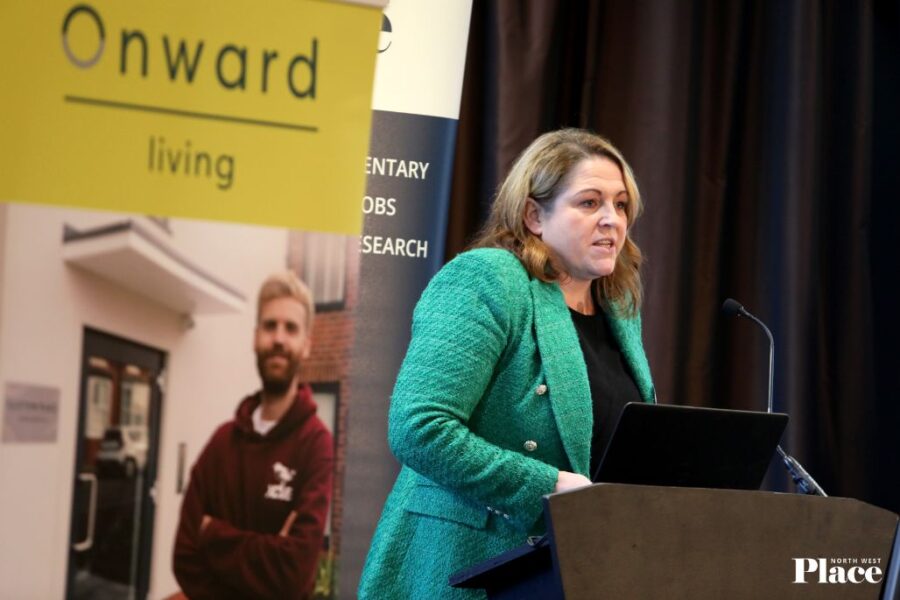
“We’re confident that what we’re putting together is deliverable, and the market interest that we’ve had through the development management process tells us there is an appetite for it,” said Gillian Whitfield. Credit: Place North West
Presentation – Knowsley Council
Gillian Whitfield, group manager of major programmes, funding and intelligence at Knowsley Council gave an update on the borough’s “aspirational growth agenda”.
In recent years, the borough has made significant progress in its strategy, establishing a major development team and combining that with the Knowsley Chamber and Knowsley Growth Hub for a “single front door to investment”.
With a population of 150,000, Knowsley is a relatively small local authority area. However, driven by investment from both the Liverpool City Region and the private sector, the number of households is expected to grow 10%-15% by 2028.
Whitfield said: “We are one of the smaller local authority areas [in the city region], but we are delivering more than our fair share of growth.”
The borough has surpassed its target of 450 new homes every year in the last five years, delivering more than 1,000 new homes in 2019-20.
But growth has gone far beyond just new houses. “There’s activity evident in all our town centres,” Whitfield said, referring to significant developments underway in Prescot, Kirkby and Huyton.
In particular, she focused on the £32m Shakespeare North Playhouse in Prescot. The theatre, business and education centre celebrates the playwright’s ties to both Prescot and to nearby Knowsley Hall. Set to open next summer, it will be the anchor for the town’s leisure and cultural economy.
“For us, it’s had what’s been known as the Shakespeare effect. It’s really kickstarted the cultural regeneration of Prescot town centre,” Whitfield said. “Knowsley is extremely proud of the work that’s been done to deliver what many people thought was pie in the sky or an overly ambitious theatre.”
Other highlights included £140m invested in Kirkby town centre to regenerate the area, bring in new infrastructure and finally open a supermarket in what used to be called a “food desert”.
Meanwhile, in Huyton, the council has spent the last two years investing in the shop fronts, ultimately helping to open seven new restaurants – with more to come – in an area that only recently had none.
All these changes happened despite the pandemic. Now, although Knowsley lost out on levelling up funding, Whitfield remains confident that growth will steam ahead.
“We’re confident that what we’re putting together is deliverable, and the market interest that we’ve had through the development management process tells us there is an appetite for it,” she said. “So we are doing it anyway.”
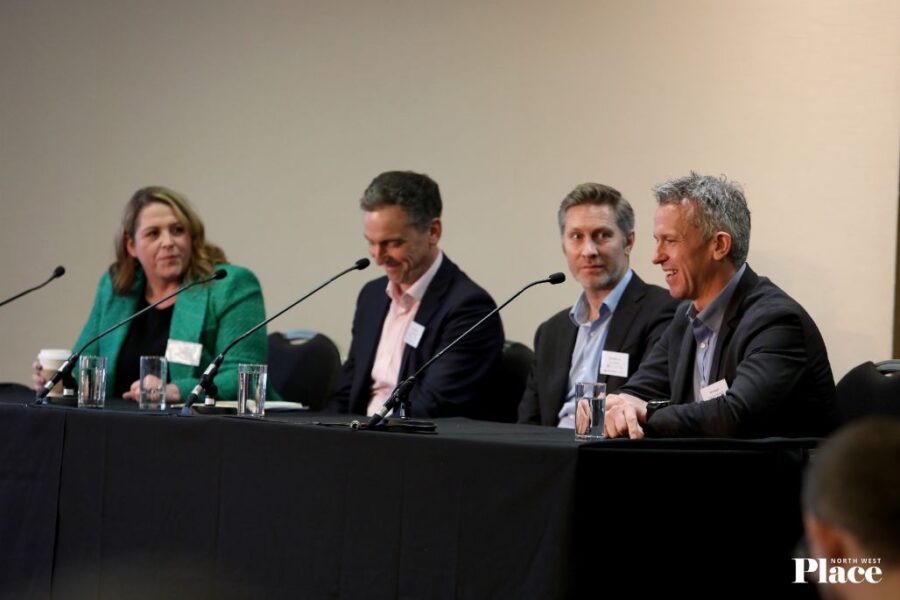
From left: Knowsley Council’s Gillian Whitfield, Liverpool Waters’ Chris Capes, DK Architects’ Dave Dickerson and Muse Developments’ Phi Mayall. Credit: Place North West
Panel – Merseyside of Tomorrow
- Gillian Whitfield, group manager of major programmes, funding and intelligence, Knowsley Council
- Phil Mayall, board director, Muse Developments
- Chris Capes, director of development, Liverpool Waters
- Dave Dickerson, director, DK Architects
The drivers and challenges to development in Merseyside were a recurring theme in the second panel discussion.
Picking up from her presentation, Gillian Whitfield questioned how successfully levelling up funding can accomplish its goal of levelling up the region.
Not only do councils have to compete against each other, but places like Prescot are also at risk of losing out because they straddle two local authority areas.
“The requirements of the funding make that almost an impossible bid to be able to put together unless it’s a transport-related one, which it’s not,” she said.
Knowsley is working with St Helens to put together a joint bid, but restrictions on the number of projects in a bid, for example, will make that difficult. “I think guidance around it probably needs a re-write,” Whitfield said.
Phil Mayall emphasised that Liverpool needs to strike a balance between culture and employment. Reflecting on Muse’s development of St Paul’s Square 10 years ago, he said: “It sometimes felt in Liverpool that there was too much emphasis on culture and cultural activity, and less on employment.
“Let’s not forget that what came first in Liverpool… was the industry, and the employment and the entrepreneurship, and the culture followed it.”
Inevitably, the panel touched on the city losing its World Heritage status earlier this year. Chris Capes said that although Liverpool Waters would have preferred the status to remain, the decision does not have an effect on its development plans for the area.
If anything, he said, the regeneration of the city’s northern docks will accomplish what World Heritage status set out to do: to share Liverpool’s history. “Development will enable people to come in and learn more about the history, the heritage and enable us to tell that story,” he said.
However, there have been setbacks. Capes said: “There is a plan to deliver [offices], but we’re working through the details at the moment.
“There was a detailed plan just prior to Covid hitting. We’re having to rethink the way we’re going to do it.”
On a more encouraging note, Dave Dickerson said that a lack of council resources has had very little effect on the schemes DK Architects is working on: “I think it’s very easy to hammer the planners all the time, but I’m not sure we are actually seeing massive implications.”
Of its 60 ongoing projects, only three have been delayed. Councils such as Sefton and Halton have worked closely with the team to speed up significant regeneration schemes. The support the industry needs is still there in Merseyside.
The presentation slides can be accessed below:
Sandy Livingstone, Onward Homes
Gillian Whitfield, Knowsley Council
The next Place North West event is 22 November, Question Time Manchester: Defining the capital of the North. Tickets are currently on sale for the in-person event.
Click any image to launch the gallery




